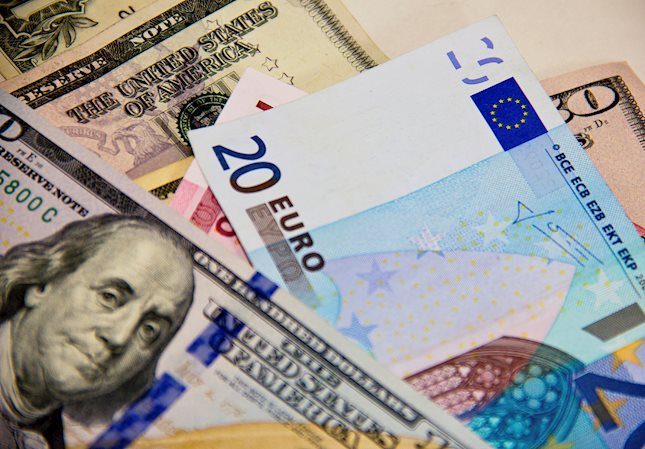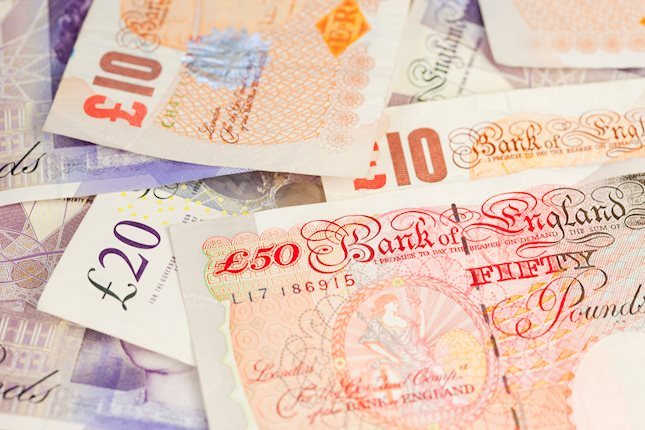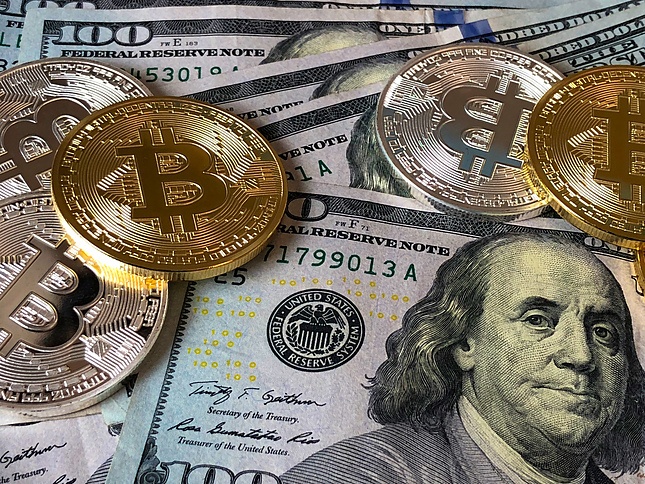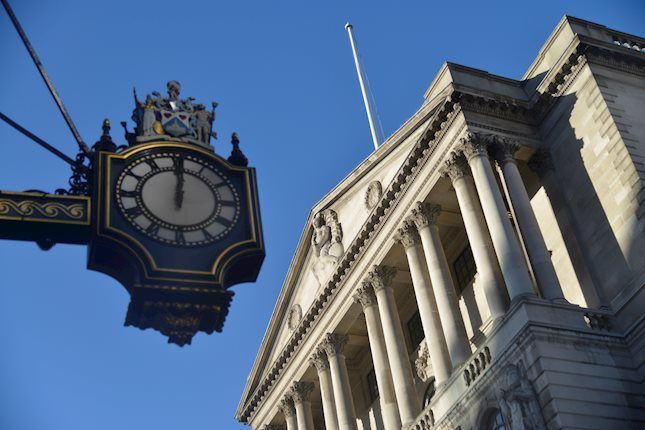- Pound Sterling stretches losses near 1.2850 as investors are mixed about the pace at which the Bank of England will raise interest rates.
- A decline in United Kingdom’s inflation has offered some relief to BoE policymakers.
- UK finance minister is confident of winning the battle against elevated inflation.
The Pound Sterling (GBP) has resumed its downside journey after meeting critical resistance above 1.2950. The GBP/USD pair has shifted into a bearish trajectory as investors hope that the Bank of England (BoE) won’t hike interest rates by a wide margin now since inflation has responded well to easing food prices offered by producers at factory gates.
However, the policy-tightening spell will continue as the United Kingdom’s current inflation is significantly higher than the desired rate. The UK central bank will announce the interest rate decision in August, and an interest rate hike of 25 basis points (bps) would push policy rates to 5.25%.
Daily Digest Market Movers: Pound Sterling stretches downside amid cautius market mood
- Pound Sterling faces stiff resistance above 1.2950 as a journey towards 2% inflation is far from over.
- United Kingdom’s inflation softened in June beyond expectations but further quantitative tightening by the Bank of England cannot be ruled out.
- The monthly headline Consumer Price Index expanded at a nominal pace of 0.1% against the consensus of 0.4% and the former release of 0.9%.
- Annual headline inflation has decelerated significantly to 7.9% vs. the estimates of 8.2% and the prior release of 8.7%. Core CPI that excludes volatile food and oil prices has softened marginally to 6.9% from its fresh highs of 7.1%.
- Headline inflation at 7.9% is the lowest inflation figure in the past 15 months and the first downward surprise in the past five months.
- UK households get a sigh of relief as prices of goods at factory gates have softened dramatically. Producers are passing on the benefit of a decline in raw materials to end-consumers.
- The BoE has used policy tightening aggressively to ease inflationary pressures but has harmed the economic outlook.
- Easing inflationary pressures might motivate the BoE to raise interest rates by 25 bps only.
- Commenting on the inflation data, UK Finance Minister Jeremy Hunt is confident that he can win the battle against inflation. Hunt said, “We are seeing the first fruits of the difficult decision but a long way to go.”
- BoE Deputy Governor Dave Ramsden said on Monday the central bank should speed up the pace at which it is unwinding its 800-billion-Pound ($1 trillion) stockpile of government bonds bought as part of its quantitative easing operations, as reported by Reuters.
- About inflation, BoE Ramsden conveyed that the latest UK inflation data shows indicators of inflation persistence still a bit higher than BoE expected in May.
- The overall market mood is cautious as United States equities remained uncertain on Wednesday.
- The US Dollar Index (DXY) has rebounded after a corrective move as investors await the interest rate decision by the Federal Reserve (Fed) for its July meeting, which is scheduled for next week.
- A small interest rate hike of 25 bps is expected from the Fed, which will push interest rates to 5.25-5.50%.
- On Wednesday, US Census Bureau reported that construction of new single-family homes missed expectations. The economic data dropped to 1.44M vs. the expectations of 1.49M and the former release of 1.559M.
- In Thursday’s session, investors will focus on weekly Initial Jobless Claims data for the week ending July 14.
Technical Analysis: Pound Sterling skids below 1.2900
Pound Sterling has continued its four-day losing streak. The Cable has witnessed immense selling pressure after failing to sustain the breakout of the Rising Channel chart pattern formed on a daily scale. The asset rebounded after sensing buying interest near the 20-day Exponential Moving Average (EMA) at around 1.2860 but has now resumed its downside journey. Upside momentum has faded but remains mostly still intact.
BoE FAQs
What does the Bank of England do and how does it impact the Pound?
The Bank of England (BoE) decides monetary policy for the United Kingdom. Its primary goal is to achieve ‘price stability’, or a steady inflation rate of 2%. Its tool for achieving this is via the adjustment of base lending rates. The BoE sets the rate at which it lends to commercial banks and banks lend to each other, determining the level of interest rates in the economy overall. This also impacts the value of the Pound Sterling (GBP).
How does the Bank of England’s monetary policy influence Sterling?
When inflation is above the Bank of England’s target it responds by raising interest rates, making it more expensive for people and businesses to access credit. This is positive for the Pound Sterling because higher interest rates make the UK a more attractive place for global investors to park their money. When inflation falls below target, it is a sign economic growth is slowing, and the BoE will consider lowering interest rates to cheapen credit in the hope businesses will borrow to invest in growth-generating projects – a negative for the Pound Sterling.
What is Quantitative Easing (QE) and how does it affect the Pound?
In extreme situations, the Bank of England can enact a policy called Quantitative Easing (QE). QE is the process by which the BoE substantially increases the flow of credit in a stuck financial system. QE is a last resort policy when lowering interest rates will not achieve the necessary result. The process of QE involves the BoE printing money to buy assets – usually government or AAA-rated corporate bonds – from banks and other financial institutions. QE usually results in a weaker Pound Sterling.
What is Quantitative tightening (QT) and how does it affect the Pound Sterling?
Quantitative tightening (QT) is the reverse of QE, enacted when the economy is strengthening and inflation starts rising. Whilst in QE the Bank of England (BoE) purchases government and corporate bonds from financial institutions to encourage them to lend; in QT, the BoE stops buying more bonds, and stops reinvesting the principal maturing on the bonds it already holds. It is usually positive for the Pound Sterling.
Information on these pages contains forward-looking statements that involve risks and uncertainties. Markets and instruments profiled on this page are for informational purposes only and should not in any way come across as a recommendation to buy or sell in these assets. You should do your own thorough research before making any investment decisions. FXStreet does not in any way guarantee that this information is free from mistakes, errors, or material misstatements. It also does not guarantee that this information is of a timely nature. Investing in Open Markets involves a great deal of risk, including the loss of all or a portion of your investment, as well as emotional distress. All risks, losses and costs associated with investing, including total loss of principal, are your responsibility. The views and opinions expressed in this article are those of the authors and do not necessarily reflect the official policy or position of FXStreet nor its advertisers. The author will not be held responsible for information that is found at the end of links posted on this page.
If not otherwise explicitly mentioned in the body of the article, at the time of writing, the author has no position in any stock mentioned in this article and no business relationship with any company mentioned. The author has not received compensation for writing this article, other than from FXStreet.
FXStreet and the author do not provide personalized recommendations. The author makes no representations as to the accuracy, completeness, or suitability of this information. FXStreet and the author will not be liable for any errors, omissions or any losses, injuries or damages arising from this information and its display or use. Errors and omissions excepted.
The author and FXStreet are not registered investment advisors and nothing in this article is intended to be investment advice.
Recommended content
Editors’ Picks

EUR/USD extends recovery beyond 1.0400 amid Wall Street's turnaround
EUR/USD extends its recovery beyond 1.0400, helped by the better performance of Wall Street and softer-than-anticipated United States PCE inflation. Profit-taking ahead of the winter holidays also takes its toll.

GBP/USD nears 1.2600 on renewed USD weakness
GBP/USD extends its rebound from multi-month lows and approaches 1.2600. The US Dollar stays on the back foot after softer-than-expected PCE inflation data, helping the pair edge higher. Nevertheless, GBP/USD remains on track to end the week in negative territory.

Gold rises above $2,620 as US yields edge lower
Gold extends its daily rebound and trades above $2,620 on Friday. The benchmark 10-year US Treasury bond yield declines toward 4.5% following the PCE inflation data for November, helping XAU/USD stretch higher in the American session.

Bitcoin crashes to $96,000, altcoins bleed: Top trades for sidelined buyers
Bitcoin (BTC) slipped under the $100,000 milestone and touched the $96,000 level briefly on Friday, a sharp decline that has also hit hard prices of other altcoins and particularly meme coins.

Bank of England stays on hold, but a dovish front is building
Bank of England rates were maintained at 4.75% today, in line with expectations. However, the 6-3 vote split sent a moderately dovish signal to markets, prompting some dovish repricing and a weaker pound. We remain more dovish than market pricing for 2025.

Best Forex Brokers with Low Spreads
VERIFIED Low spreads are crucial for reducing trading costs. Explore top Forex brokers offering competitive spreads and high leverage. Compare options for EUR/USD, GBP/USD, USD/JPY, and Gold.